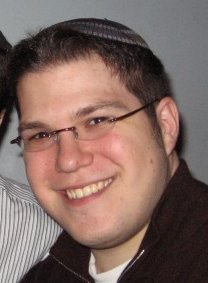A friend has just gotten through telling me that he was entertaining himself with my delightful blog. A few minutes later he told me that he thinks I should write a grammar book. To this I replied that I don't want to write a textbook because I would be unable to take advantage of the treasury of words English has made available to us. He responded that he was thinking more along the lines of the British best-seller, "Eats, Shoots & Leaves." Now, I have been planning to write the great fantasy novel for the past couple of years; I just haven't gotten around to it yet. So, I thought about my friend's suggestion and came to the following conclusion. It's highly likely that I don't know nearly as much about grammar as I think I do. If I ever read "Eats, Shoots & Leaves" I would probably learn a lot more. But then I would probably start correcting people even more than I do already. My friend says that I would become intolerable. I couldn't tolerate being intolerable. If I was really such a stickler, I wouldn't be using words such as "gonna" or "wanna" in here. I also wouldn't be using contractions; those just aren't allowed when you're writing. And then we'd start getting into arguments about punctuation, because sometimes Microsoft Word, the Messiah of grammar, allows you to comma splice when you really shouldn't be allowed. It will also let you get away with only putting one space after periods. But, oddly enough, it won't let you get away with not putting a comma before "which" when it's used as a conjunction. Bill might be a multi-kajillionnaire, but to me he's just a maniacally inconsistent grammar fiend.
On that note, by the way, just two more grammatical tidbits to get you all off the edge of your seats; I know how breathlessly you were waiting for some more.
1. When you're typing numbers, you need to type out the actual word for all numbers from zero up to twelve. Once you get to 13 you are allowed to type the numerals. And just so y'all understand the difference, the numeral "3" is merely a symbol representing the quantity "three." That's not a grammatical issue; it's a math issue.
2. The last sentence of that last tidbit provides a smooth segue into the next one. I really like using semi-colons, but they need to be used the right way. You can't merely replace a comma or a period with a semi-colon. I mean you can't have a semi-colon immediately succeeded by a conjunction. You could, in theory and in practice, put a period instead of a semi-colon, but semi-colons are far cooler. Just make sure that your second sentence is directly related to the first one; I like cheese.
Please allow me, once again, to recognize the gadlus of Mike and Mike in the morning on ESPN radio. Some of the things they say really do it for me even though they might not be objectively funny. This is a fairly recent one that caught on, and they're using it fairly often, but not nearly often enough to become annoying. There has been a lot of discussion over the past year or two about the future of Brett Favre, the Green Bay Packers' quarterback, who, much like Tom Glavine, is a sure-fire first-ballot Hall of Famer. Basically, the coaches and various important members of the Packers' front office have stated at one time or another that they won't pressure Favre to retire unless he's really damaging the team. After all, "Brett Favre is Brett Favre." Mike and Mike have used this line repeatedly, which coaches make similar comments about other players. They were discussing the propensity of San Francisco 49ers quarterback Alex Smith to make mistakes in important situations. Of course he is a young player and will learn from his mistakes, but just as they were finishing the discussion, Greenberg said "after all, Alex Smith is Alex Smith, and..." and immediately after that, they played a clip of the Packers' coach saying "Brett Favre is Brett Favre." That's terrific stuff. I wish I were this clever.
skip to main |
skip to sidebar
Schmutter's Idea Place. Oops, I meant "Palace." Schmutter's Idea Palace.
